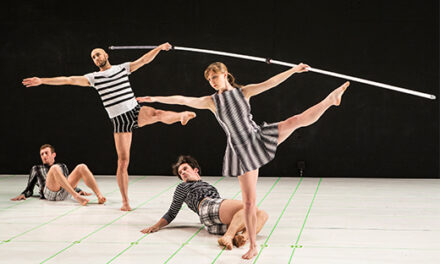There are places where music lovers may live out their whole lives without ever hearing a concert performance of Antonín Dvořák’s Requiem, so any reading of the massive, somber work is both welcome and rare. We’ve heard it several times in the Triangle, over the years, but it’s been a while, so the Super Tuesday concert in Meymandi Concert Hall by the North Carolina Master Chorale was welcome on its own merits and for the solace and diversion it provided. It was a magnificent evening, with some of the best choral singing to be found hereabouts, a quartet of nicely-matched soloists who gave true ensemble performances, and a splendid orchestra comprised of many of the region’s best instrumentalists. And at the helm was Alfred E. Sturgis, long-time music director of one of the Capital City’s most revered arts organizations.
Tuesdays are not customary concert nights. That this was election day and that the weather did not appear propitious surely contributed to the smaller-than-usual crowd, but those who made their way to the grand venue (and how fortunate we are to have a true concert hall, as opposed to a multi-purpose room…) were richly rewarded on many levels – interpretive, artistic, purely musical, and of course spiritual. The fact that the presenters could not find a weekend date tells us that Raleigh still needs to address an evident shortage of accessible and affordable venues for its local perrforming arts organizations.
The NCMC’s Symphonic Choir, to judge from the roster printed in the program, is among the better-balanced choruses here, with nearly as many tenors as basses (wonder of wonders!) and roughly comparable numbers of sopranos and altos. Impressive, on paper. Even more impressive, in action. This Requiem is so beautifully scored that music from it sounds like chamber music in support of selectively deployed small vocal groups. There was magic in the air – really! – as the thirteen numbers (arrayed in two substantial parts) unfolded, but most notably in the splendor of the tenors and basses, whose singing (from risers behind the orchestra) repeatedly reached levels of sensitive refinement rarely heard here, most particularly in terms of their beautiful blend. That’s not to put the ladies in the shade – there was clarity, immaculate diction, and awesome projection of their parts from the choir loft, above the stage, with the back portion nicely filled and both sides also occupied, providing a quite astonishing choral spread across the width of the hall. Sturgis knows his stuff, and it’s not for nothing that he is one of our senior choral masters.
The guest soloists were Regan Bisch, soprano, Kaitlyn Alexandra McMonigle, mezzo-soprano, Joseph Ittoop, tenor (who earns his living as an accompanist), and Jonathan Deutsch, bass. If our records are accurate, the soprano sang here last summer, the tenor, in NC Opera’s Eugene Onegin in 2016, and the bass, in the NCMC’s previous performance of this Requiem, in 2004. This was apparently the mezzo’s local debut.
The soloists are frequently engaged and have one movement entirely to themselves (No. 6, Recordare), but for the most part they are tightly integrated with the chorus in its various divisions, so there aren’t big numbers for the guests as in, say, Verdi’s Requiem. As program annotators Joe and Elizabeth Kahn observe, this presents one of the challenges for the Dvořák – he “avoids arias,” they write, adding that the work is “largely contemplative…, full of gorgeous melodies but almost completely slowly or moderately paced.” Yes. And here, in the circumstances we presently confront, it was just what the doctor ordered. But that it’s not operatic? Well, there are certainly lots of dramatic echoes in this music, and those familiar with the composer’s ten operas – not to mention his secular oratorio, The Spectre’s Bride – will certainly have recognized bits and pieces from his theatrical music, woven into the Requiem‘s fabric. And finally, it was incidentally a commissioned work, in memory of no one in particular. The composer is said to have wrestled with his personal beliefs, but it was meant for performance in England, to enhance his business prospects!
The soprano soared sweetly, often elegantly; the mezzo was radiant in her appearances. Tenor Ittoop seemed to find the tessitura challenging but for the most part excelled. It was good to hear the basso again – his distinguished service career is inspiring in its own right, and golly, he can sing!
And then there was that orchestra. We know Dvořák to be a great master creator who knew how to score everything from chamber music to stage works. This Requiem is rich in its underpinning and positively radiant in the passages where the instrumentalists play on their own. Contractor Paul Gorski commented that the artists involved in the band were merely a group of old friends – true, and it was good to see and hear some of our most distinguished retirees – but this ensemble moved from strength to strength, much like the choir that hosted the evening. It was Sturgis’ leadership that provided the glue, atop his outstanding preparations. No one present can have been disappointed. And what a welcome relief from politics and the pandemic it was! Lord knows we needed something like this right now.
(Folks who missed it can’t go wrong with any of the Czech readings available on records/CDs. Karel Ancerl’s version is justly famous. Wolfgang Sawallisch’s is, some will avow, even better, since it’s graced by the presence of one of the greatest Czech sopranos in history: Gabriela Beňačková-Čápová.)











